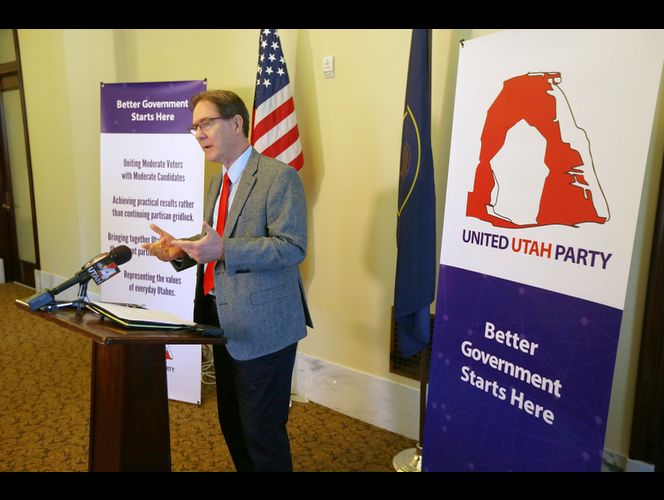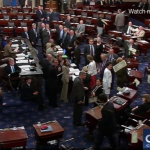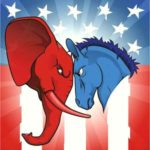Utah Republicans and Democrats came together this week to form a new centrist political party that hopes to make an immediate impact.
The United Utah Party, led by a political science professor, seeks to carve out a middle ground in a state is already divided along three separate groups of voters, according to the Deseret News.
“We are not forming another extremist, fringe political party,” said BYU political science professor Richard Davis (above), a former Utah county Democratic Party chairman. “We are people who are in the center of the political spectrum.”
A key member of the fledgling party, which debuted at the state Capitol on Monday, is Jim Bennett, son of the late GOP Sen. Bob Bennett, who was unceremoniously tossed aside by Tea Party Republicans in 2010.
Bennett’s father was dumped in his bid for a fourth Senate term by far-right GOP delegates at a sparsely attended state convention, though he had high popularity ratings among all voters and was considered one of the nation’s most conservative senators. His defeat sparked legislation that switched the Utah nominating process to open primary elections and made it much easier for third parties to form and gain ballot access.
Jim Bennett said he has been a man without a political home for a long time. He and Davis believe they’re not alone in their frustration with the major parties.
“We don’t think disaffected Republicans and Democrats have a place go,” he said.
Though President Trump carried Utah in 2016, a majority of the state’s voters cast ballots for others — either Democrat Hillary Clinton or independent Evan McMullin.
While Utah is labeled a deep Red State, 39 percent of Utah’s 1.5 million registered voters are currently unaffiliated (independent). Another 46.6 percent are Republicans; 11.4 percent are Democrats; 1.6 percent belong to the Independent American Party; 0.9 percent are Libertarians; and 0.4 percent belong to the Constitution Party.
The United Utah Party still lacks official status but it has already set its sights on a few close-range targets. First, the party is gathering the 2,000 signatures needed to become a registered political party in the state. Next, it hopes to have a candidate on the ballot for 3rd Congressional District special election to replace Republican Rep. Jason Chaffetz, who is stepping down June 30. The party is also recruiting candidates for the 2018 election.
Davis is confident that a party with a centrist agenda can be successful, though he acknowledged an uphill battle to establish itself.
“We understand there’s a couple of Goliaths out there and we’re David,” he said.
Photo: Scott G. Winterton/Deseret News







